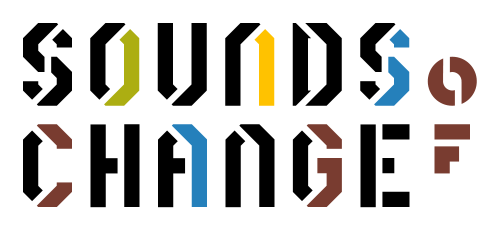Music changes the world because it changes people.
Based on this belief, Sounds of Change was founded in 2017.
Sounds of Change trains (local) professionals to use the power of music in their work with different (traumatized) focus groups. Sounds of Change operated in Greece, Cyprus, Romania, Lebanon, Palestine, Egypt, Tunisia, Ukraine, Jordan, Iraq, Syria and in the Netherlands.
Today, Sounds of Change is active in Northeast Syria, Jordan, Lebanon, the Palestinian territories, Ukraine and the Netherlands.
We pass on music as a tool to aid workers, psychologists and teachers who work in places in the world where people have become alienated from themselves and from each other. We see our trainees as changemakers. They use music as a connecting and transforming means to support (traumatized) people in places like refugee camps, asylum seeker centers, deprived areas and (former) war zones.
Music speaks where words or language are a barrier.
Music is an expression of a culture, identity and offers security.
Improvising and composing music gives back a sense of control.
Making music together enables people to listen better.
Music creates a bond, gives energy and joy.
Within the safe space of music, people listen better to each other, express themselves in a (non)verbal way, become more open to different opinions and look for solutions.
We work from the belief that the power of music can bring about social change, heal and connect people.
“I learned that each one of us has something to present. Even though someone is not specialised in a specific thing, he or she is still allowed to pose an idea or have an opinion about it. It’s good to listen to each other, because you can learn something from everyone. Every opinion is valuable.”
Nadine, Sounds of Change trainee in Lebanon
Changemakers
We pass on music as a tool to aid workers, psychologists and teachers who work in places in the world where people have become alienated from themselves and from each other. We see our trainees as changemakers. They use music as a connecting and transforming means to reach as many young people and (traumatized) children as possible in places like refugee camps, asylum seeker centers, deprived areas and former war zones.
Method
We have developed our own training method and trainees have access to our online library with exercises, music and instructional videos.
We also use our online method as an introduction and as an addition to in person working visits.
See, hear and experience our impact
We use a monitoring and evaluation program to tailor our training to the needs of our participants and partners.
In terms of impact, we work on two levels: the individual and the social. We measure the impact on the individual level of our trainees using monitoring and evaluation and interviews. At a societal level, we are partly dependent on our partners who measure the impact. This is a long process, sometimes taking years.
Read stories from our trainees here about what the training has meant to them.
Anthropologist and flutist Floortje de la Fosse investigated the impact of our work in four asylum centers in the Netherlands. You can read the impact report here which also includes a link to the full study.
For a glimpse into the artistic results, we invite you to see, hear and experience our newsletters, stories and sound section.



